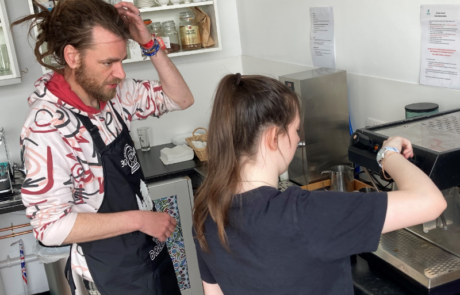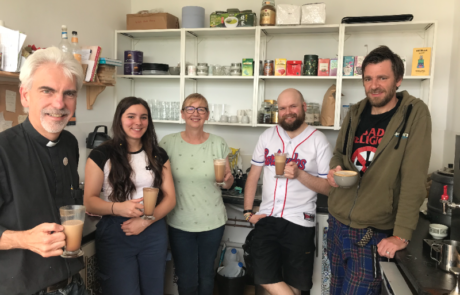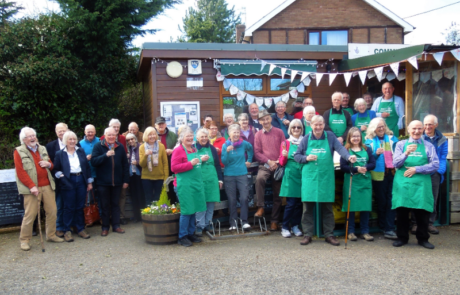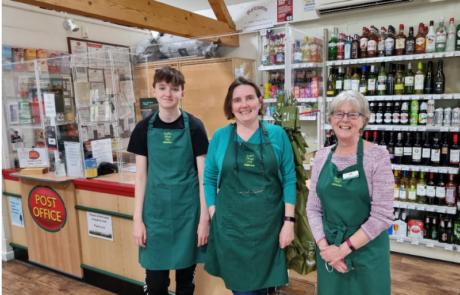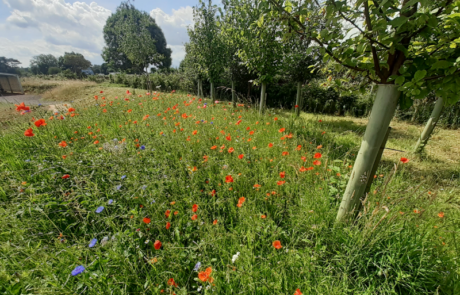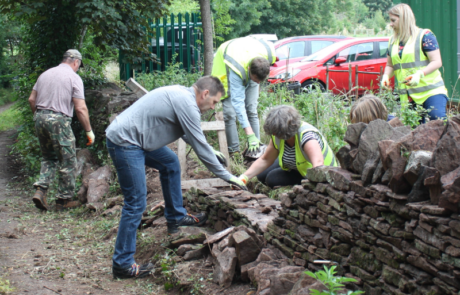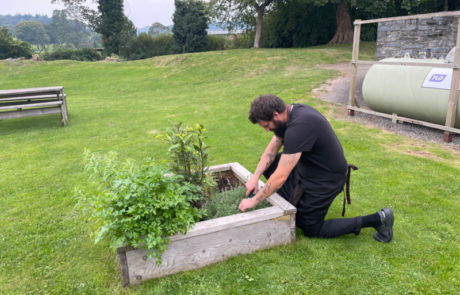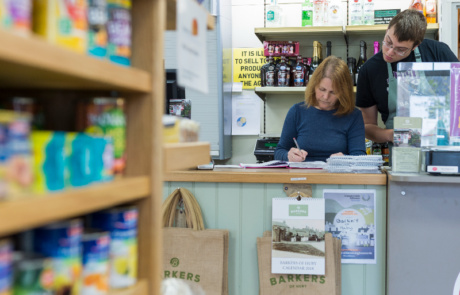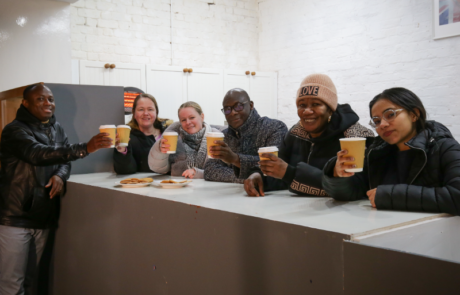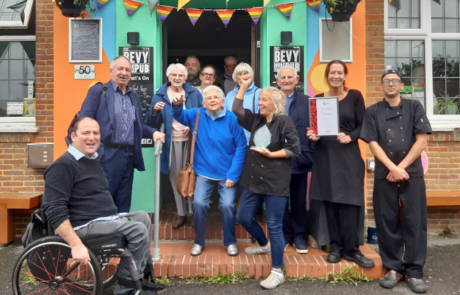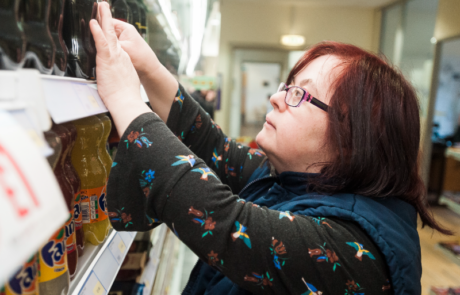Providing a wide range of services and amenities that communities value and need
In our impact blog series, based on the 2024 Impact Report, we’ve been showcasing how Plunkett UK actively supports community-owned businesses, serving as their main point of contact. As part of our core mission, we empower community businesses to make a difference in five key areas, with our final focus urging them to offer services and amenities that meet the needs of their communities.
Most community businesses supported by Plunkett operate in areas of market failure. Also, predominantly based in rural areas, which are often remote with poor or no public transport, the businesses enable people to access core services that many people take for granted. The existence of these businesses, be they shops, pubs, woodlands, hubs or heritage centres, can be transformative for people on low incomes, living with disabilities, or those with caring responabilities. They help people who can become isolated to remain connected and feel included in the place where they live.
Statistics from Plunkett UK’s ‘Community Ownership: A Better Form of Business’ 2023
In 2023, against the backdrop of a well-documented cost of living crisis, the community business network demonstrated a continued commitment to providing key services, in the face of extremely challenging trading conditions that they themselves are facing.
Community businesses providing a key service!
Focus Easington, in County Durham, established a community benefit society to create ‘The Welcome Centre’ to provide a key local service to people in need. The project is based in Easington Colliery Methodist Chapel, which has been at risk of closure since 2022, and is an important local asset in an area of high deprivation.
Thanks to the work we have done with the Benefact Trust, Plunkett were able to support the community’s aspiration to see the chapel being sympathetically modernised to become an accessible, multifunctional community space offering regular worship alongside youth provision, a lunch club, employability sessions, health and wellbeing services and community-owned launderette.
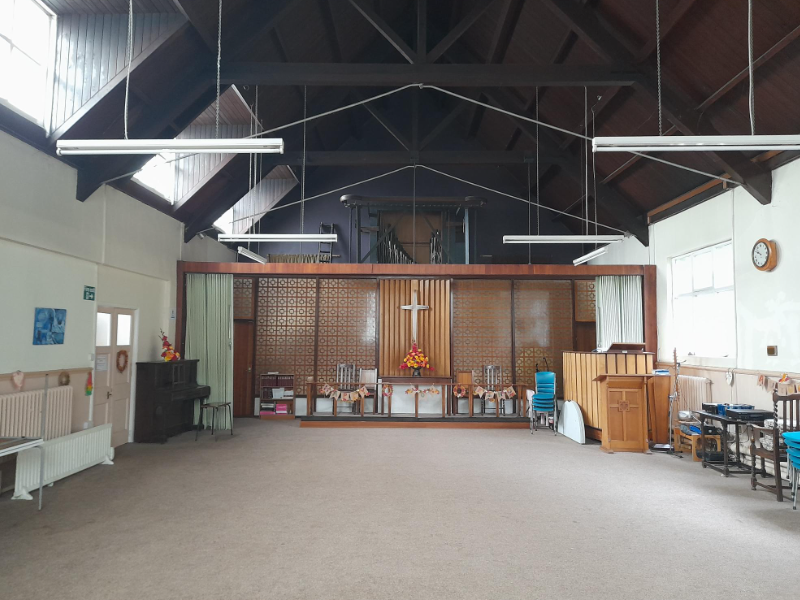
‘The Welcome Centre’ in the Easington Colliery Methodist Chapel
Another great insight!
Another enterprise who has benefited from Plunkett and the Benefact Trust’s partnership last year is Amberley Shop on the Common in Gloucestershire.
When the last shop in the village closed in 2017, the community held a meeting with the idea of establishing a new hub. The plan was for something which could be sustainably run and would provide, among other things, a place to meet, employment opportunities for the community, and a shop selling quality local produce.
And they have done just that! Their community café serves as a warm area, particulary welcoming elderly individuals facing mobility challenges and dementia, providing them with a comforting space to connect, socialise, and feel embraced by the community. The shop offers a versatile upstairs balcony area that local groups can use for meetings, such as the French conversation classes held by a dedicated tutor in their inviting café setting.
In rural areas, young people often encounter obstacles in accessing valuable work experience opportunities due to limited transportation options. However, Amberley showcases how community-owned enterprises can bridge this gap by offering young individuals the chance to gain essential work experience skills. By engaging students in programmes like the Duke of Edinburgh Award, where they contribute as part of the volunteer team on weekends, they recieve comprehensive training and hands-on experience across various roles in the shop and café.

Amberley Shop on the Common, based in the Church!
A summary of our Impact Areas
The impact blog series has highlighted the incredible achievements of community businesses supported by Plunkett across our five key impact areas. This latest blog highlights the vital role that services and amenities offered by community-owned businesses play in enriching local communities. These establishments serve as more than just places of employment; they serve as hubs where individuals can come together, socialise, and build connections.
Furthermore, these businesses contribute to the local economy by prioritising local supply chains, whether through a ‘farm to fork approach’ or by engaging local tradespeople to expand their infrastructure, thus offering more space for community use. Moreover, the emphasis on creating opportunities for employment, training, and volunteering is particuary impactful for young people seeking valuable work experience to boost their confidence and advance their careers.
Community businesses also make a difference in combatting climate change by utilising green spaces for tree planting, shrubbery, and the establishment of wildflower meadows. Lastly, our advocacy for community businesses to champion equity, diversity, and inclusion is crucial in fostering safe and inclusive envrionments for all. By extending our support to underrepresented areas in community ownership, we aim to address hidden needs like mental health challenges, loneliness, and isolation that can be particulary prevalent in rural settings.
Examples of Community Businesses being impactful…
Does your community business showcase these areas of impact?
Let us know! Our communications team would love to hear your stories! Email: communications@plunkett.co.uk
Or if your community business requires our support, contact our dedicated front line support team on 01993 630022 or email: info@plunkett.co.uk


